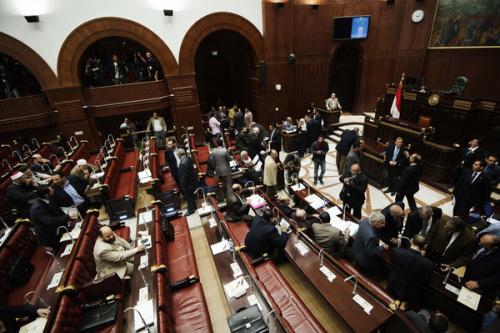In a globalize economy much is made of the importance of attracting foreign investors. Much of the work we do at Euromoney focuses on enabling countries such as Egypt to attract more and more diverse international investors. This is the right thing to do.
However, this focus sometime detracts from the importance of developing a vibrant and professional domestic investor base. How to do this and why it is important will be two of the topics covered at the Euromoney conference in September.
At the conference and in this article I am focusing on institutional investors — that is to say, financial investors in securities and other assets — as opposed to direct investors who manage a company or project in the country.
Egypt’s institutional investor base will grow from pension funds, insurance companies, dedicated asset management arms of banks and investment companies. The funds, companies and asset managers do exist now but they are small relative to GDP-based benchmarks and not yet full participants in the financial markets. This needs to change.
Domestic institutional investors freely investing in stocks, bonds, real estate, private equity and more are bedrock for development of a market for investments in a country. Their active participation in the markets brings a number of benefits:
They improve liquidity — the Egyptian financial markets are not as liquid (the ability to buy and sell assets more or less at the current market price) as they could be. With active local institutional buyers, sellers and lenders of securities, liquidity will improve. If liquidity improves so will the real value of assets.
They increase the availability of investment capital — domestic institutional investors create more investment capital for projects in Egypt. This is often indirectly provided but still very important. If, for example, a real-estate developer can sell a completed development to a pension fund then that transaction frees capital on the developer’s balance sheet for further investment in new projects. The pension fund does not invest in the riskier new projects but its presence as a second-stage buyer has created the environment where this investment was possible.
They create an environment where risk can be managed and funding options increased — in the multi-tiered and complex world of financial markets the presence of “buy and hold” institutions allows for more precise risk management. Pension funds and insurance companies are risk averse institutions (less so perhaps than banks) but they are willing to invest in vehicles such as Private Equity or Venture funds. These funds then provide capital to new companies and projects.
The risk is (in theory) diversified across a portfolio of investments and the investors can choose more precisely the level of risk for which they have appetite. The end user — the new company — has a wider range of funding options — traditional bank finance, venture capital, public equity markets and so forth.
They attract foreign institutions into the market — foreign institutional investors always prefer there to be a vibrant domestic institutional market. This stems from a concern about liquidity (if the foreign institution needs to exit their investment they want to know there are institutional buyers who are committed to the market over the long-term. — “if the locals aren’t investing in their own country then what do they know that I don’t?”
For these reasons and many more it is important that, to encourage the next stage of development in the Egyptian investment market, domestic institutions are allowed to grow and play a role in the market far more than they do now. I will be advocating this at the Euromoney Conference and we will have a panel of local and international experts who will give us their views, comments and suggestions.
Richard Banks is Middle East Director for Euromoney Conferences. This commentary is published by Daily News Egypt in collaboration with Euromoney Conferences.


